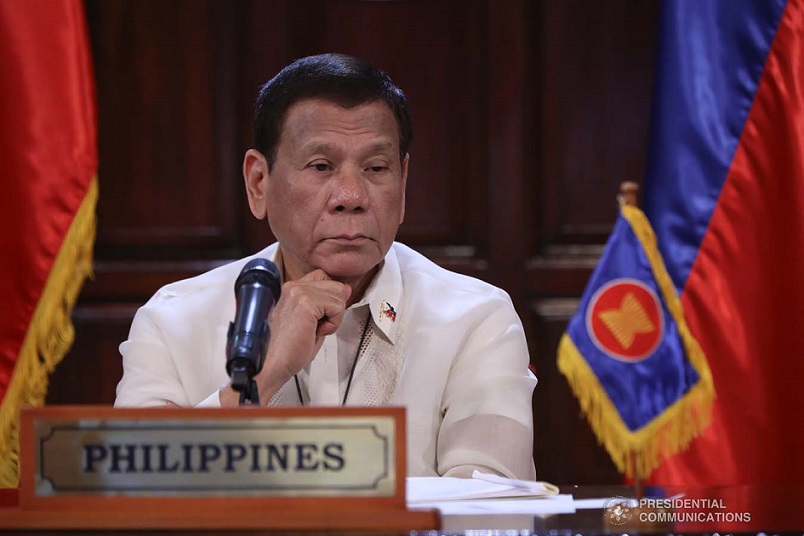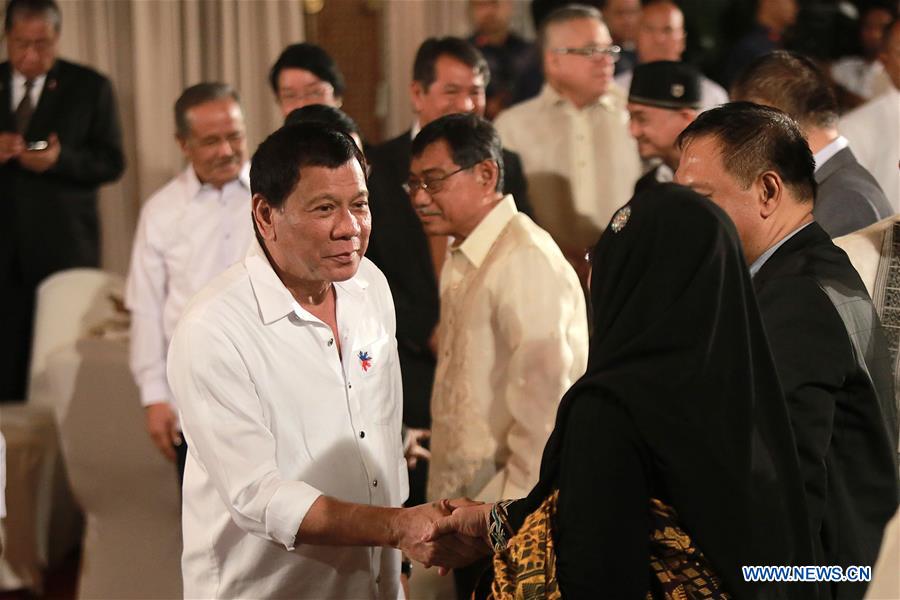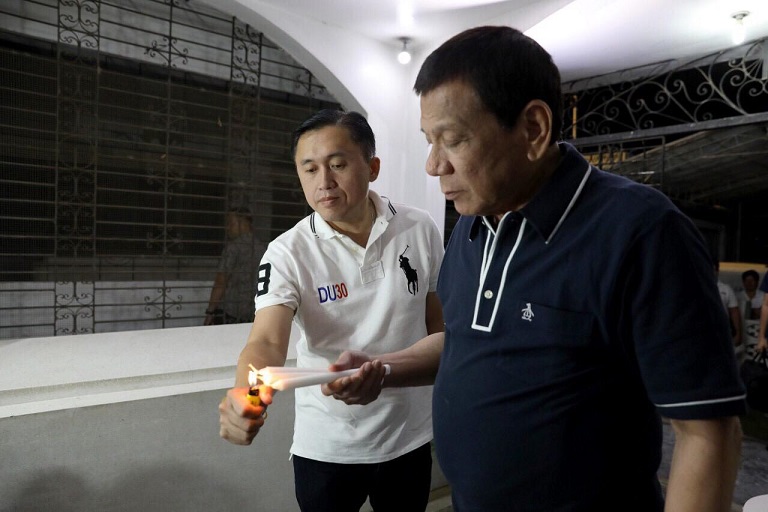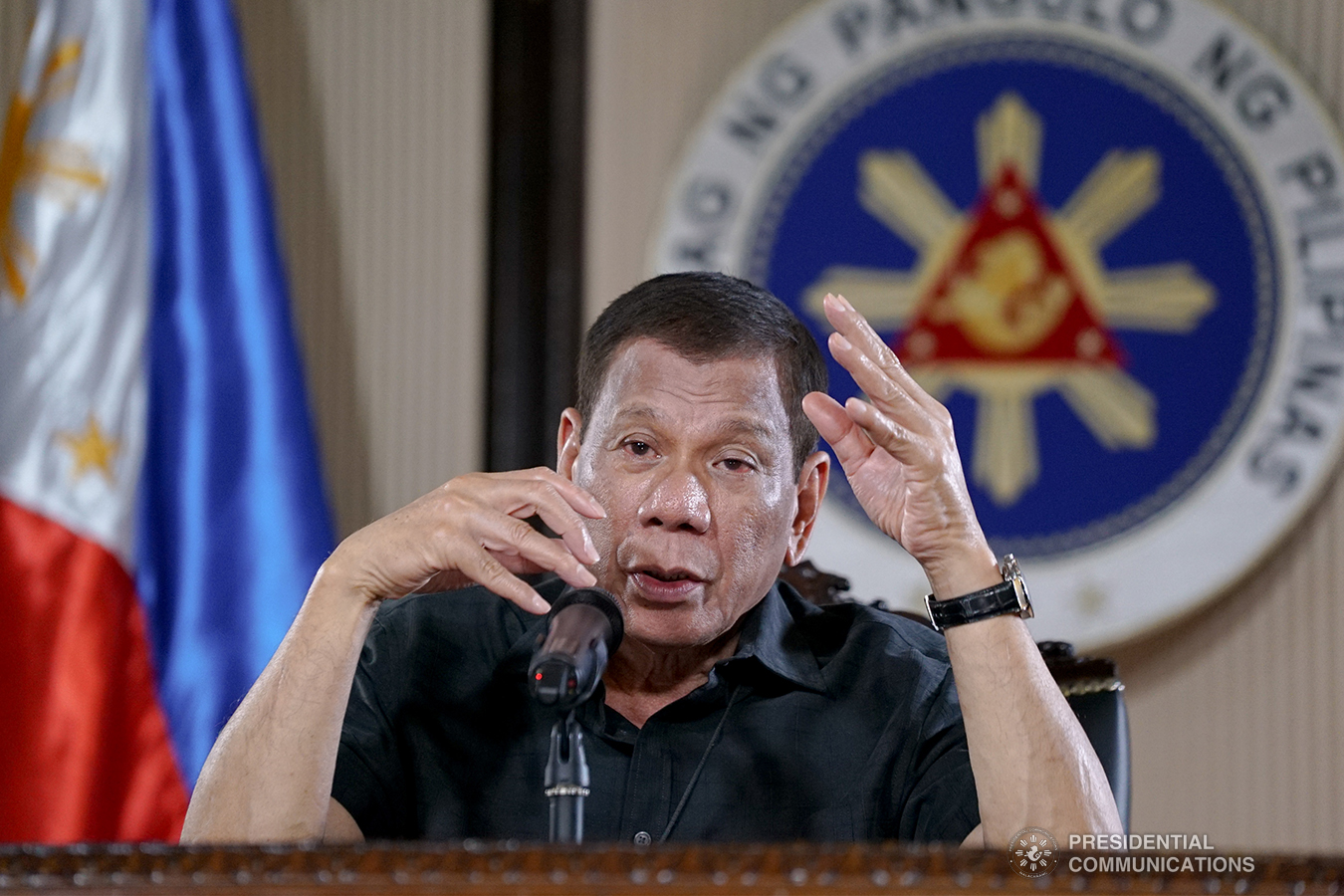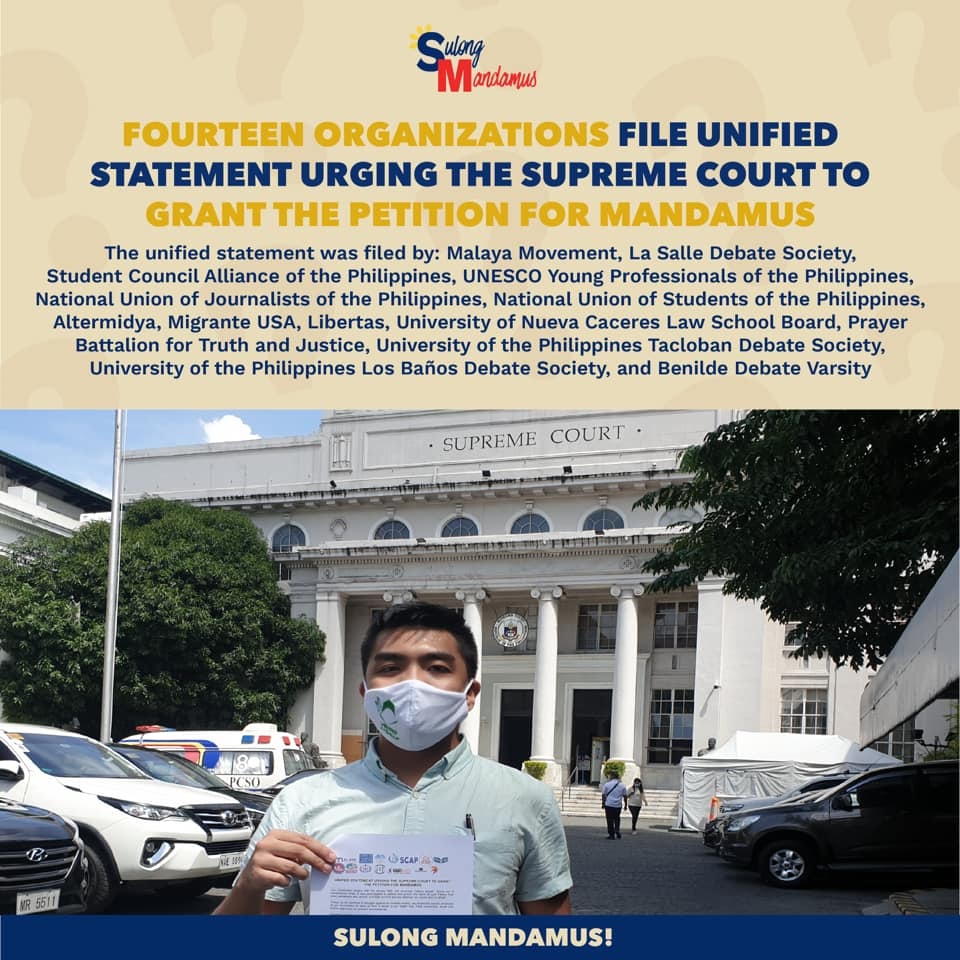A New York-based physician said some of President Rodrigo Duterte’s illnesses when taken together may be considered “serious” enough to warrant public disclosure, as required by the Constitution.
The medical conditions Duterte had previously admitted to have — such as myasthenia gravis, buerger’s disease, and barrett’s esophagus — “all together…are serious and can be debilitating enough to prevent continuing work in public office,” family doctor Christine Santisteban said during an online forum on May 23.
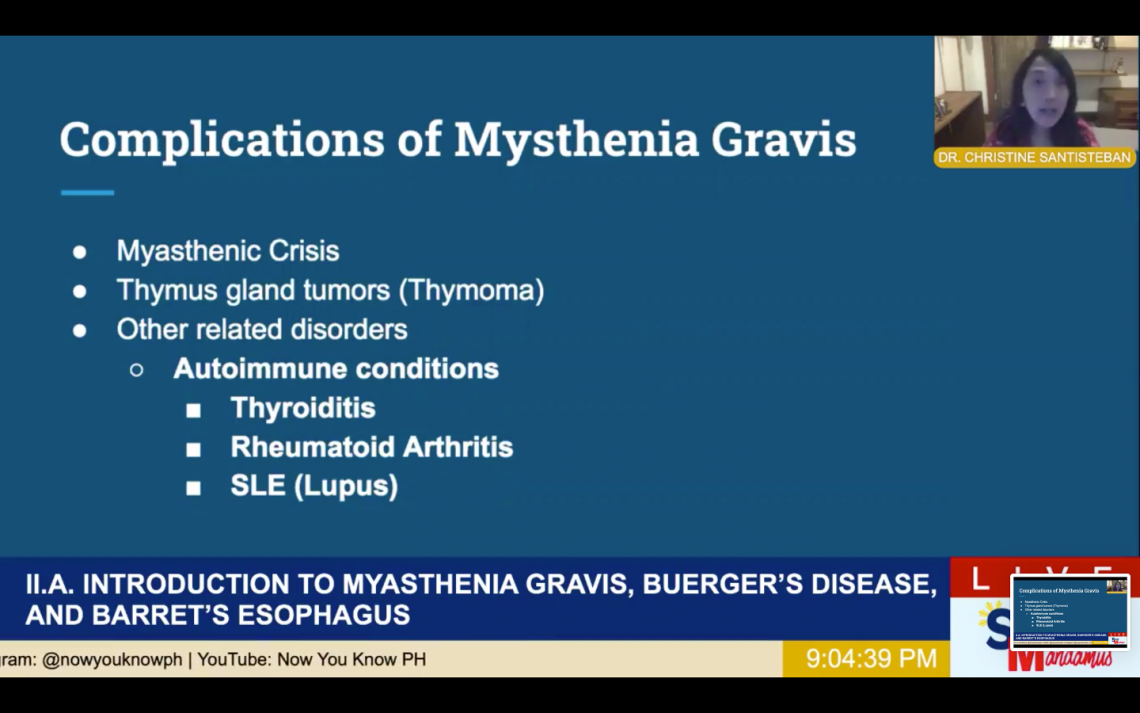
Santisteban discussing the possible complications that may arise from myasthenia gravis during the Sulong Mandamus forum on the people’s constitutional right to know the status of the president’s health. Screenshot from Now You Know Facebook page.
The physician, who briefly discussed the three conditions during the forum, explained that they can lead to dangerous complications:
- Myasthenia gravis, a “long-term, neuromuscular disease” that causes weakness in the skeletal muscles, can develop into a myasthenic crisis, which is a “life-threatening condition” that occurs when muscles controlling breathing or respiration become too weak to function;
- Buerger’s disease, a “rare” condition that causes “acute inflammation and clotting” of arteries and veins in the arms and legs,” over time can “slow and completely stop” the blood flow in one’s fingers and toes; and
- Barrett’s esophagus, a disorder in which the lining of one’s esophagus is damaged by stomach acid, is “associated with an increased risk for developing esophageal cancer.” While the risk is “small,” it still “requires mandatory surveillance.”
These three illnesses were among those cited in a petition for mandamus filed before the Supreme Court (SC) by lawyer Dino de Leon in April, who said that “when everyone’s safety is in peril” amid the coronavirus disease (COVID-19) pandemic:
“…the Filipino People should at least have the information on the health of the main decision maker…to ensure that [he] is physically and mentally fit to be at the helm of the government.”
The high court, however, dismissed de Leon’s petition on May 8 in a 13-2 vote without requiring the respondents to comment. The resolution has yet to be released.
Sec. 12, Art. VII of the 1987 Constitution requires that the public be informed of the president’s state of health in case of “serious illness.”
There is, however, “some ambiguity” on how provision should be implemented, Dante Gatmaytan, a constitutional law professor at the University of the Philippines, said at the same online forum.
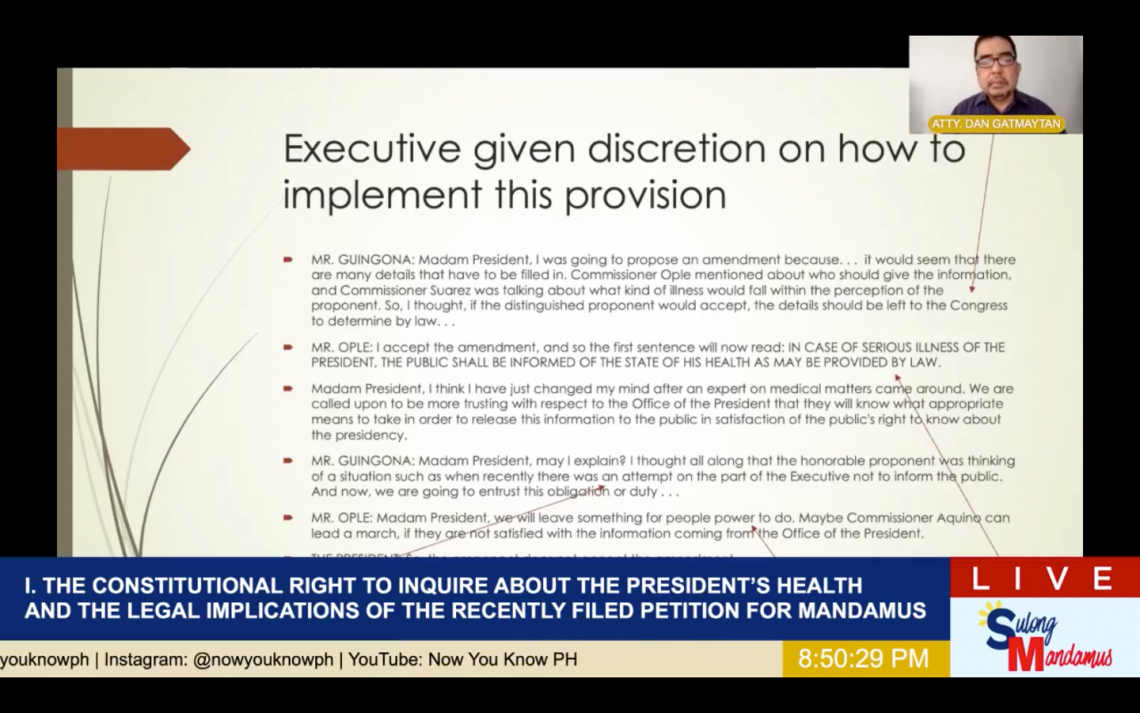
Gatmaytan says the framers of the Constitution left discretion to the Office of the President on how to implement the provision on the president’s state of health. Screenshot from Now You Know Facebook page.
Based on the discussions during the 1986 Constitutional Commission (ConCom), Gatmaytan said the executive department, particularly the Office of the President (OP), was given the “discretion on how to implement the provision.” (See Palace denies VERA Files’ FOI request on Duterte’s health; official statement, medical records ‘not on file’)
The Constitution also does not provide a clear definition of what counts as a “serious illness.” (See VERA FILES FACT SHEET: The deal with the president’s health)
In his comprehensive reviewer of the 1987 Charter, Fr. Joaquin Bernas, a member of the 1986 ConCom, said the provision:
“…envisions not just illness which incapacitates but also a serious illness which can be a matter of national concern.”
The late Sen. Blas Ople, who proposed the provision, said it covers medical conditions that “[does] not really [incapacitate] but seriously inconvenience” the president in the conduct of his urgent duties, such as an advanced state of kidney disease that requires treatment by dialysis, among “infinite” examples.
But ultimately, “what constitutes a serious illness is being left to the hands of the courts because they are the ones who are going to interpret the Constitution if there is any disagreement among all [its] stakeholders,” Gatmaytan said.
As the country’s oldest president to be elected at 75 years old, Duterte’s state of health has been hounded by rumors and speculations, including death hoaxes, even before he assumed office in mid 2016.
Aside from the three conditions Santisteban discussed, the president had also previously admitted to having been suffering from gastroesophageal reflux disease (GERD), and daily migraines and spinal issues. (See DUTERTE’S HEALTH SAGA: A TIMELINE PART 1; PART 2)
While it is still unclear why the SC denied de Leon’s petition, Gatmaytan said on Santisteban’s assessment of the gravity of Duterte’s publicly known conditions:
“I can imagine the court will rely on the opinion of experts, and if the weight of the medical opinion is that [it is] a serious illness, then they’d probably use that as basis dito sa (in this) petition for mandamus.”
